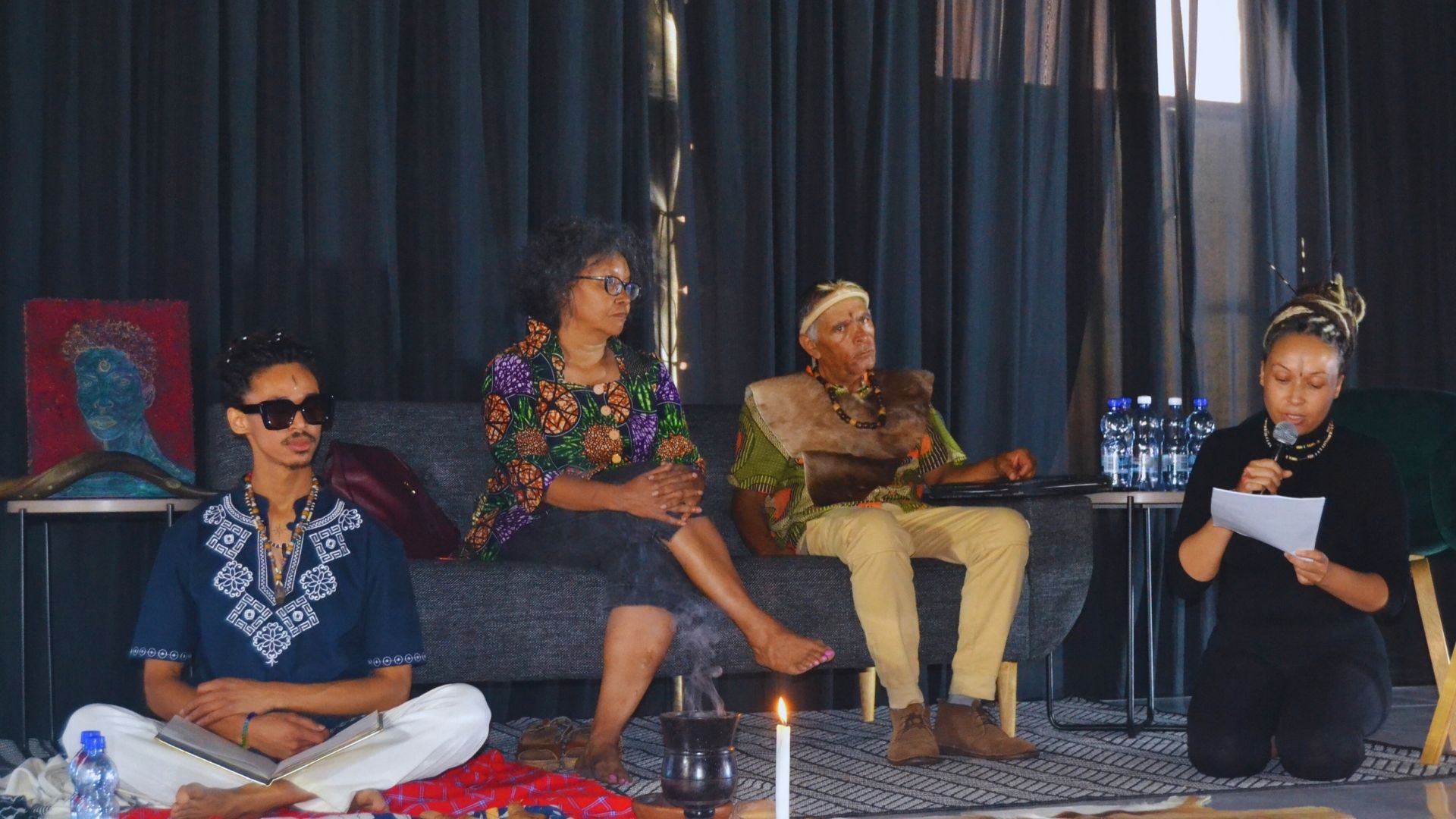Constitution Hill was alive with activity as hundreds of people descended on the venue to celebrate Human Rights Day, which commemorates the 1960 Sharpeville massacre when the apartheid police gunned down scores of unarmed civilians who were protesting against oppression.
The 6th edition of the Constitution Hill Human Rights Festival treated NGOs, civil society organisations and members of the public to art exhibitions, live music, film screenings and, most importantly, critical dialogues to dissect different human rights issues facing the nation as South Africa celebrates 30 years of democracy.
“When we talk about human rights, it means we are talking about human beings. I’m not talking about Black, White, Coloured, or Indian. I’m talking about us as human beings, not a racial classification. So, we’re celebrating us as humans today.”
These were the words of Keith Duarte, also known as Chief !Xam, as he and his other panel members discussed the current state of indigenous people in South Africa.
Joining Chief !Xam on the panel was ANC Head of Policy and Research and NEC member Fébé Potgieter-Gqubule, Indigene Corefio - the director of NPO Kx’am - and !Xam Sam Fortuin, an interdisciplinary artist.
According to Corefio, the indigenous people of South Africa are the /Xam people, who have some of the oldest DNA on the planet — which is why many people refer to them as the First Nation.
Corefio explained that historically, the /Xam did not believe in hierarchical structures, adding, “This is important to note, especially as we discuss constitutional values, democracy, and equality for everybody. We invented a lot of things, and I feel like we invented democracy”.
Plight of indigenous people
The hardships faced by the indigenous people of South Africa can be traced back to the 17th century when Dutch and British colonial settlers landed in the Cape.
“There was like a continuous back and forth between colonial powers and the indigenous people that they found when they got here. This eventually resulted in the systematisation or institutionalisation of hunting indigenous people,” Corefio said. “The /Xam have faced centuries of genocide, ethnocide, dispossession and marginalisation, and have been perpetuated, and these have been perpetuated by the current state.”
Racial classification, right to land issues
One of the critical issues that the panel highlighted was that the racial classification of coloured, which has its roots in colonialism, stripped them of their identity as “First Nation people.”
Potgieter-Gqubule said apartheid used the classification of coloured further to entrench the decimation of identity, history and language as well. Corefio said that the continued use of the classification strips indigenous people of their right to self-determination.
This classification, Duarte said, adds to indigenous people’s struggle for the right to ownership of ancestral land. One of the key issues that indigenous communities are facing is the right to receive land. The government’s bid for land restitution and redistribution has come under fire because it allegedly prioritises black people but leaves indigenous people in the fray.
“The only thing they have given us is the Traditional and Khoisan Leadership Act, which recognises the Khoisan traditional leadership structures. Number 1, we were not consulted in that act, and that’s why the Constitutional Court ruled it unconstitutional. Secondly, the leaders who were recognised through that act were offered monetary compensation. Nothing is said about land,” Duarte said.
Duarte added that he rejected the act and would not support it because it only benefitted a few politically connected people and left the rest of the indigenous population to live in abject poverty.
“We are not free. I, for one, am not celebrating Human Rights Day because my constitutional rights have been violated and are still being violated,” Duarte said.
Corefio called for the Land Act to be amended to allow First Nation people in the land restitution process.
Demand for government
The panel made demands for the government to ensure that indigenous people enjoy the full constitutional rights they are entitled to.
They called on the government to recognise all indigenous languages as official languages to be taught in schools in order to preserve the culture of First Nation people. Corefio also called on the government to formally recognise the Khoi and the /Xam as the First Nation.
“The government needs to take steps to facilitate dialogue with Khoi people and /Xam people on healing from the lasting effects of colonisation and genocide of our people, identity, languages and culture. It’s a journey. It took centuries to get us erased, and they couldn’t get that right, and it’s going to take centuries to heal,” Corefio said. DM




